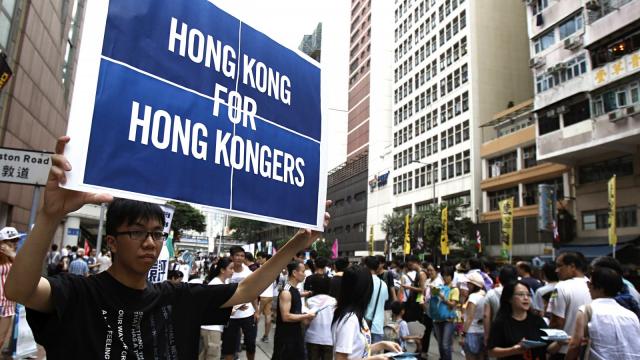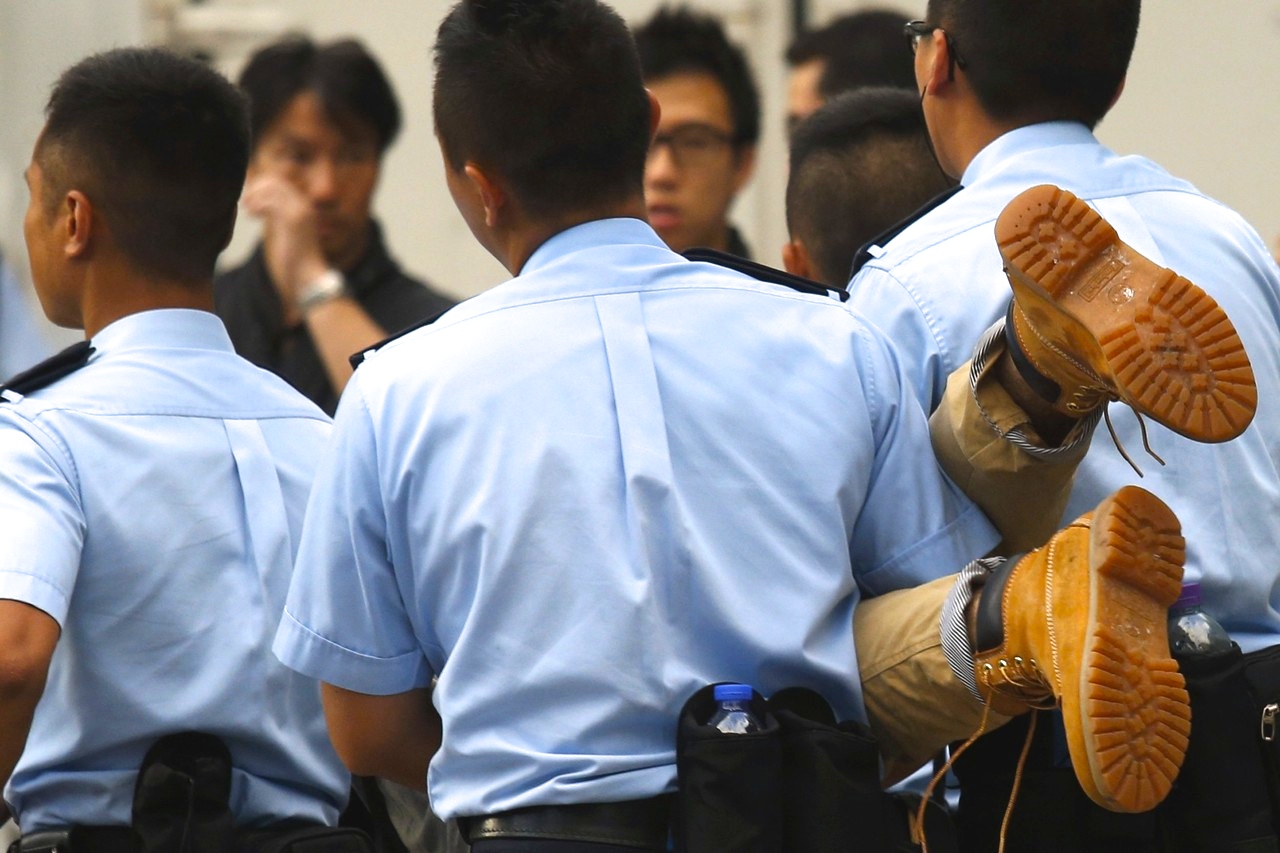
Hong Kong police have arrested more than 500 protesters for illegally "occupying" a street in the city's central business district, hours after hundreds of thousands of residents gathered for the city's biggest pro-democracy demonstration in recent history.
While the arrested protesters represented a wide cross-section of Hong Kong society, most of those arrested were students who had pledged to flood the street until 8am on Wednesday, despite vows by police to take "decisive action" if the "unlawful assembly" were to proceed.
Police began bundling away protesters at 3am on Wednesday, and continued until the end of the sit-in, when the remaining crowd – about 50 people – let out a cheer and dispersed on its own. No one has yet been formally charged.
Videos online showed blue-uniformed police carrying protesters by their arms and legs, and pushing them away on wheelchairs.
"The reason we are here is for universal suffrage and the future of our democracy," one protester shouted, according to local media.
Some protesters have been accused of "participating in an unauthorised assembly" and "obstructing police," Reuters reported; about 50 protesters have been released without charge.
"The operation is still ongoing and police express regret over the uncooperative and illegal acts of the participants of the public meeting," said a statement posted to the Hong Kong police force's website on Wednesday.
Jonathan Lam, an attorney who is giving pro bono legal counsel to the detained protesters, said that about 300 have already been released – some on bail, most with only a warning – and that the remaining 200 will likely be released soon.
"This is probably the first time in Hong Kong, or at least one of the first, that [the police] have arrested such a massive number of people on one occasion," he said, adding that the police were "confused" and disorganized, and neglected to give the detainees an adequate amount of food and water.
"I just hope the remaining 200 people will be released very soon, and that the next time the police organise such a big arrest, they'll be more prepared," he said.
The July 1 protest is held each year in Hong Kong to mark the anniversary of the former British colony's return to mainland control in 1997. The protest's organizer, the Civil Human Rights Front, said 510,000 people marched at its peak, while police estimated a headcount of 98,600. The protest was spirited but peaceful, and no incidents of violence or vandalism were reported.
Beijing controls Hong Kong under the principle of "one country, two systems," granting the region a range of civil liberties and independent institutions that do not exist on the mainland. Yet many residents feel that as Beijing's economic and political clout grows, their independence has begun to wane.
The two student groups who organized the sit-in – Scholarism and the Hong Kong Federation of Students – described the act as a "rehearsal" for Occupy Central with Love and Peace (OCLP), a larger civil disobedience movement planned for later this year.
On Sunday night, OCLP wrapped up an unofficial "referendum" in which nearly 800,000 people – more than 10% of Hong Kong's population – voted. The vast majority of them requested the ability to choose their own top leader by a process of public nomination, a possibility which Beijing categorically rejects.
China's state media did not cover Tuesday's protest. The state broadcaster CCTV said in a brief report that Hong Kong residents gathered en masse to celebrate the anniversary of the 1997 handover, with 300,000 people participating in about 17 events throughout the city.
The People's Daily, a Communist party mouthpiece, reaffirmed in a front-page editorial on Wednesday that it would require the leaders of Hong Kong to be "patriots" who "love the country, and love Hong Kong."
3 WAYS TO SHOW YOUR SUPPORT
- Log in to post comments












